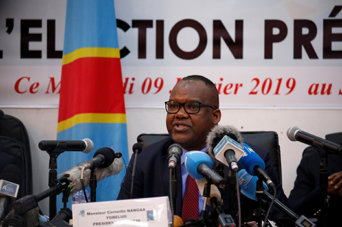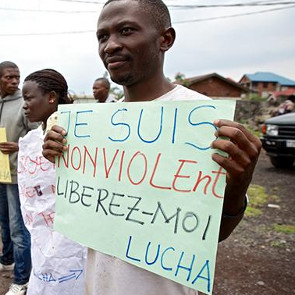- About
- Topics
- Picks
- Audio
- Story
- In-Depth
- Opinion
- News
- Donate
- Signup for our newsletterOur Editors' Best Picks.Send
Read, Debate: Engage.
| located: | Democratic Republic of the Congo |
|---|---|
| editor: | Bob Koigi |
Following days of anxiety, palpable tension and exasperated wait, the electoral body in the Democratic Republic of Congo has announced results of the presidential elections held in December in what could mark the first democratic transition of power since the largest country in Sub Saharan Africa gained independence from Belgium in 1960.
And although the government’s preferred candidate has lost, the outcomes have caused jitters and raised more suspicion as the clear frontrunner Martin Fayulu came second. Felix Tshisekedi who the electoral body has declared winner, has since been accused of striking a deal with the government. Mr. Fayulu has described the results as an ‘electoral coup’ that doesn’t reflect the truth and wishes of the majority and vowed to move to court. The Catholic Church that enjoys a massive following in the country and is seen as a moral authority has contested the results, saying it goes contrary to the findings of the 40,000 electoral observers it had deployed across the polling stations.
The international community has been careful on its choice of words since the election, only congratulating the bold Congolese voters and calling on the electoral body to pursue the path of truth and justice even as the UN Security Council discusses the situation.
Yet a smooth transition of power that reflects the will of the people is of utmost importance and urgency in a country that has known no peace since conflict broke out in the 1970s. Despite being one of the richest countries in the world due to its vast natural resources, half of the population lives on less than a dollar a day, while government officials and businessmen amass wealth. Dozens of dissidents, protestors, media and civil society members have been killed for criticizing the government. The country currently faces one of the most devastating humanitarian crises in the region.
Despite the flicker of hope that sparked when Joseph Kabila agreed to call for elections after 18 years in power, the people of Congo have paid a heavy price for democracy in the country. Violence has broken out as police cracked down on protests which took place, an Ebola outbreak locking over one million voters from exercising their right to have their voice heard on the ballot, alongside a government shutdown of the internet to tame social unrest, interference of the electoral process and a long wait for the results.
The patience of the over 80 million Congolese nationals must count for something and the onus is now on the international community to amplify its voice in calling for the will of the majority to prevail.
DR Congo is key to regional stability and the fragile peace currently being enjoyed must translate to long term optimism, hope, prosperity and respect for every Congolese vote. The world owes Congo that.

